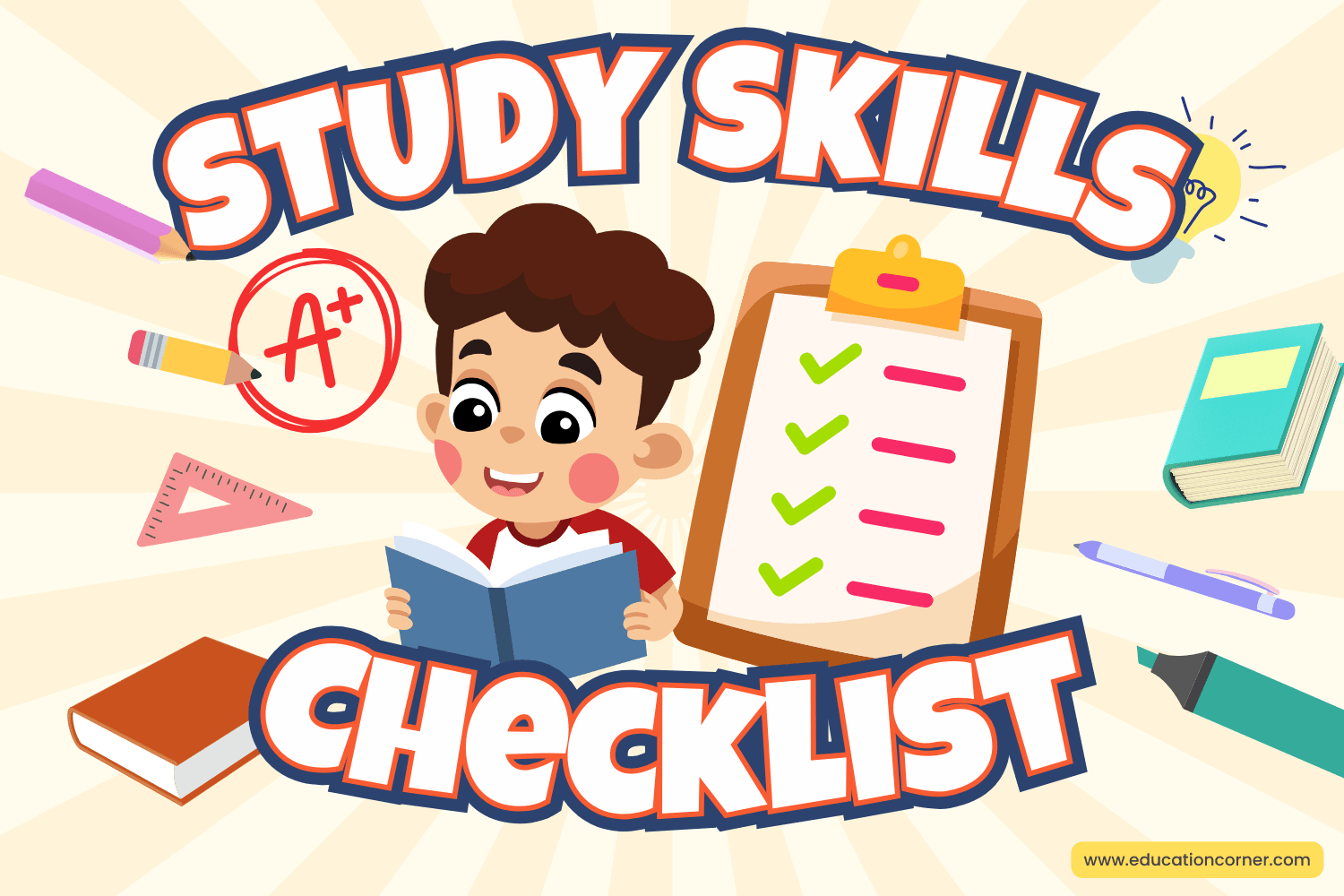We all learn differently, and we each have our own style of studying. No two people are exactly the same when it comes to study preferences.
To get the most out of your studying, it’s important to better understand what works for you, and what doesn’t.
Get started by printing out the study skills checklist below. Once you’ve done this, read each statement and determine if it applies to you. If it does, then mark Y. If it doesn’t, mark N.
The purpose of this checklist is to provide you a basic self assessment of your study habits and attitudes, so you can identify study skills areas where you might want to focus on improving.
1. Y__ N__ I spend more time than necessary studying for what I am learning.
2. Y__ N__ It’s common for me to spend hours cramming the night before an exam.
3. Y__ N__ If I dedicate as much time as I want to my social life, I don’t have enough time left to focus on my studies, or when I study as much as I need to, I don’t have time for my social life.
4. Y__ N__ I often study with the TV or radio turned on.
5. Y__ N__ I struggle to study for long periods of time without becoming distracted or tired.
6. Y__ N__ I usually doodle, daydream, or fall asleep when I go to class.
7. Y__ N__ Often the notes I take during class notes are difficult for me to understand later when I try and review them.
8. Y__ N__ I often end up getting the wrong material into my class notes.
9. Y__ N__ I don’t usually review my class notes from time to time throughout the semester in preparation for exams.
10. Y__ N__ When I get to the end of a chapter in a textbook, I struggle to remember what I’ve just got done reading.
11. Y__ N__ I struggle to identify what is important in the text.
12. Y__ N__ I frequently can’t keep up with my reading assignments, and consequently have to cram the night before a test.
13.Y__ N__ For some reason I miss a lot of points on essay tests even when I feel well prepared and know the material well.
14. Y__ N__ I study a lot for each test, but when I get to the test my mind draws a blank.
15. Y__ N__ I often study in a sort of disorganized, haphazard way only motivated by the threat of the next test.
16. Y__ N__ I frequently end up getting lost in the details of reading and have trouble identifying the main ideas and key concepts.
17. Y__ N__ I don’t usually change my reading speed in response to the difficulty level of what I’m reading, or my familiarity with the content.
18. Y__ N__ I often wish that I was able read faster.
19. Y__ N__ When my teachers assign me papers and projects I often feel so overwhelmed that I really struggle to get started.
20. Y__ N__ More often than not I write my papers the night before they are due.
21. Y__ N__ I really struggle to organize my thoughts into a logical paper that makes sense.
If you answered “yes” to two or more questions in any category listed below, we recommend finding self-help study guides for those categories.
If you have one “yes” or less in one of the categories, you are probably proficient enough in that area that you don’t require additional study help. However, no matter how you score it’s always advisable to review all study guides to help you improve your study skills and academic performance.
- Time Scheduling – 1, 2, and 3.
- Concentration – 4, 5, and 6.
- Listening & Note taking – 7, 8, and 9.
- Reading – 10, 11, and 12.
- Exams – 13, 14, and 15.
- Reading – 16, 17, and 18.
- Writing Skills -19, 20, and 21.


The most difficult part that am affected is on )1 2 & 3, most of the time l repeat the (Q) more than three times hence waste the others. . What the quickest approach on this weak area?
I would start by asking you, what about the question is making you read it multiple times? Is it the vocabulary? The concept of the question? The available answers on a multi-choice quiz? As a college professor I see the reason many of my students struggle with an exam is the vocabulary. I teach A&P in addition to a paramedic cohort. Many students skip over vocabulary because it is difficult and unnatural. Unfortunately, it is the vocabulary that establishes the content of the questions. The other struggle is that many students don’t understand what the question is asking. This typically stems from a lack of understanding of the content. Students that study on a very superficial level have a difficult time understanding a question that is written at a deeper level than they prepared for. One study method to overcome this is elaborative interrogation. Elaborative interrogation is the process of questioning the material that you studying. Asking questions like “how” and “why” of the material. You will realize that you have a deeper understanding of the material if you can verbalize out loud (to yourself or even a wall) and NOT use the same syntax that was used in the material you studied from. Many students confuse a familiarity of the material with the true understanding of the concepts. If you are able to restate the material in your own words, you are no longer basing your supposed understanding on the provided material but on your own new knowledge of the concept. I can’t tell you how far this would go on an exam that uses different wording in the stem of the question then the wording that you studied. I hope this helps.